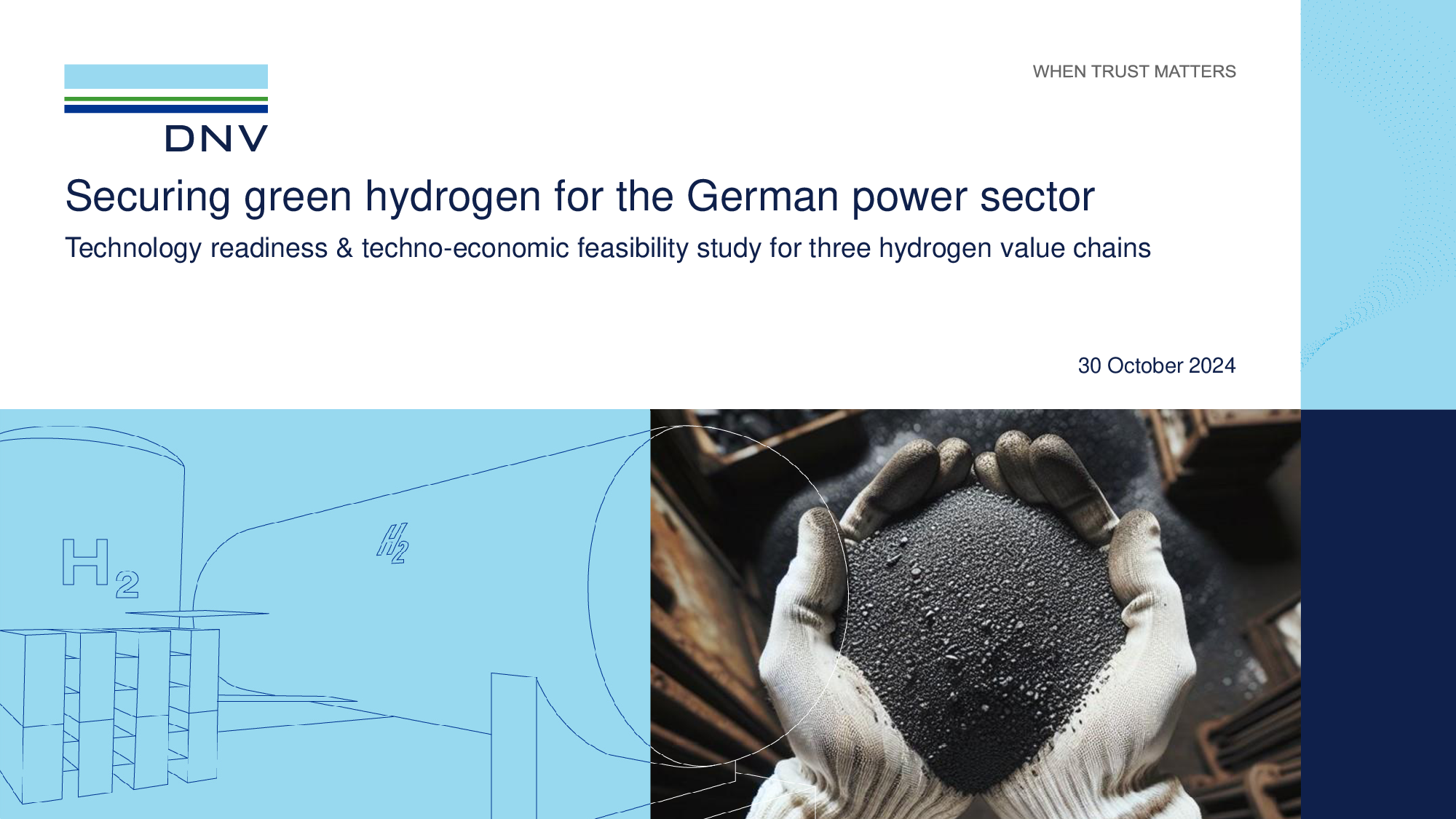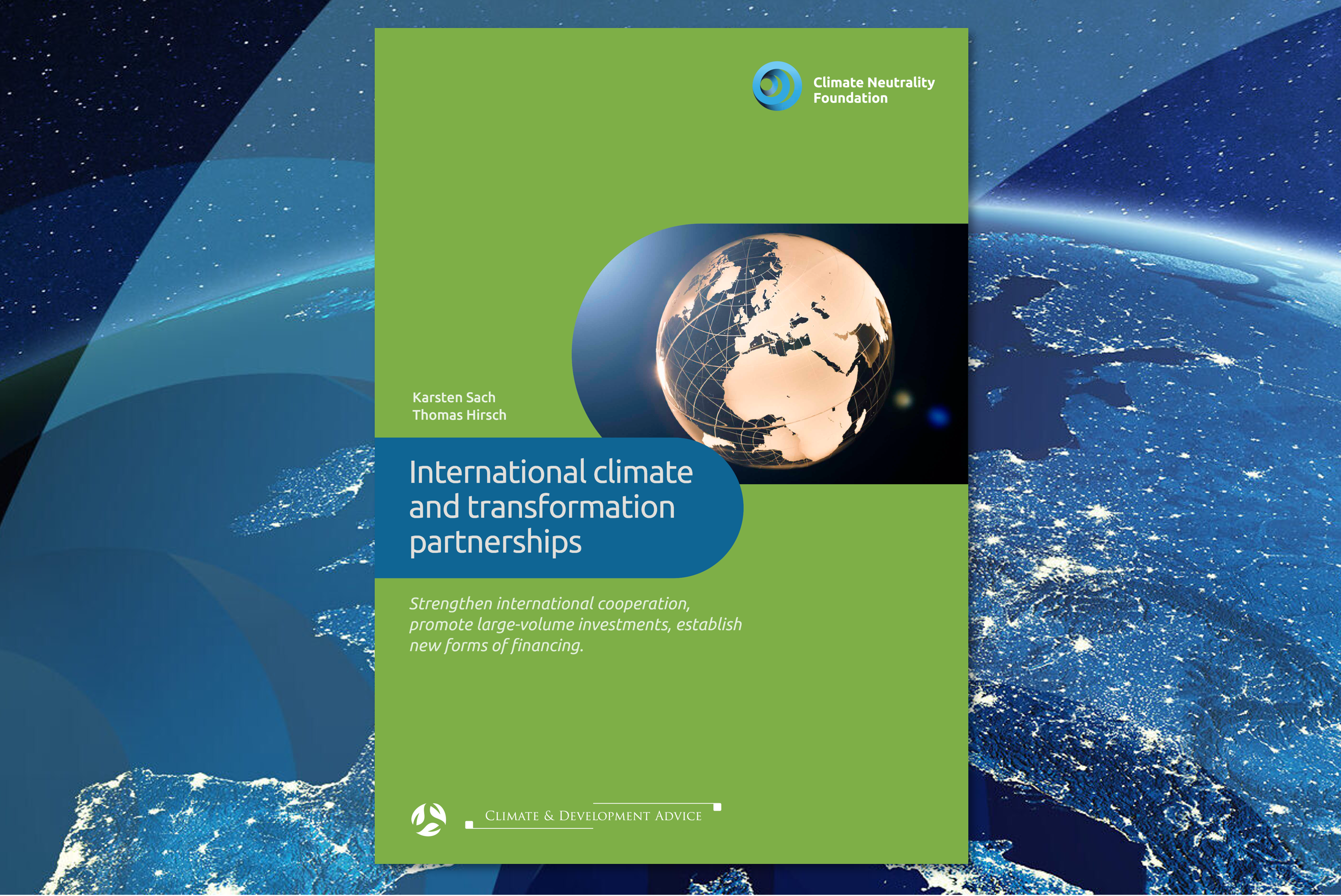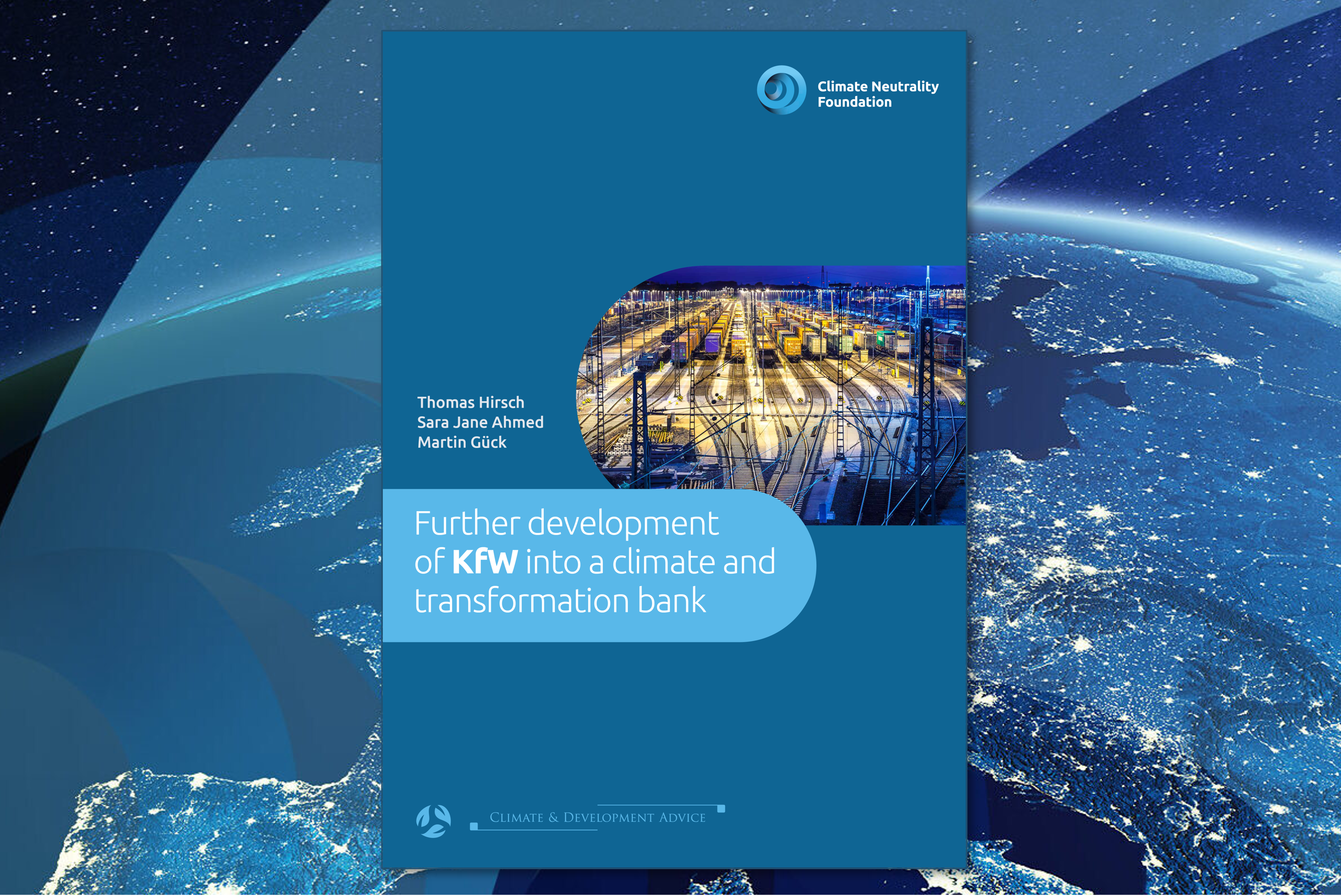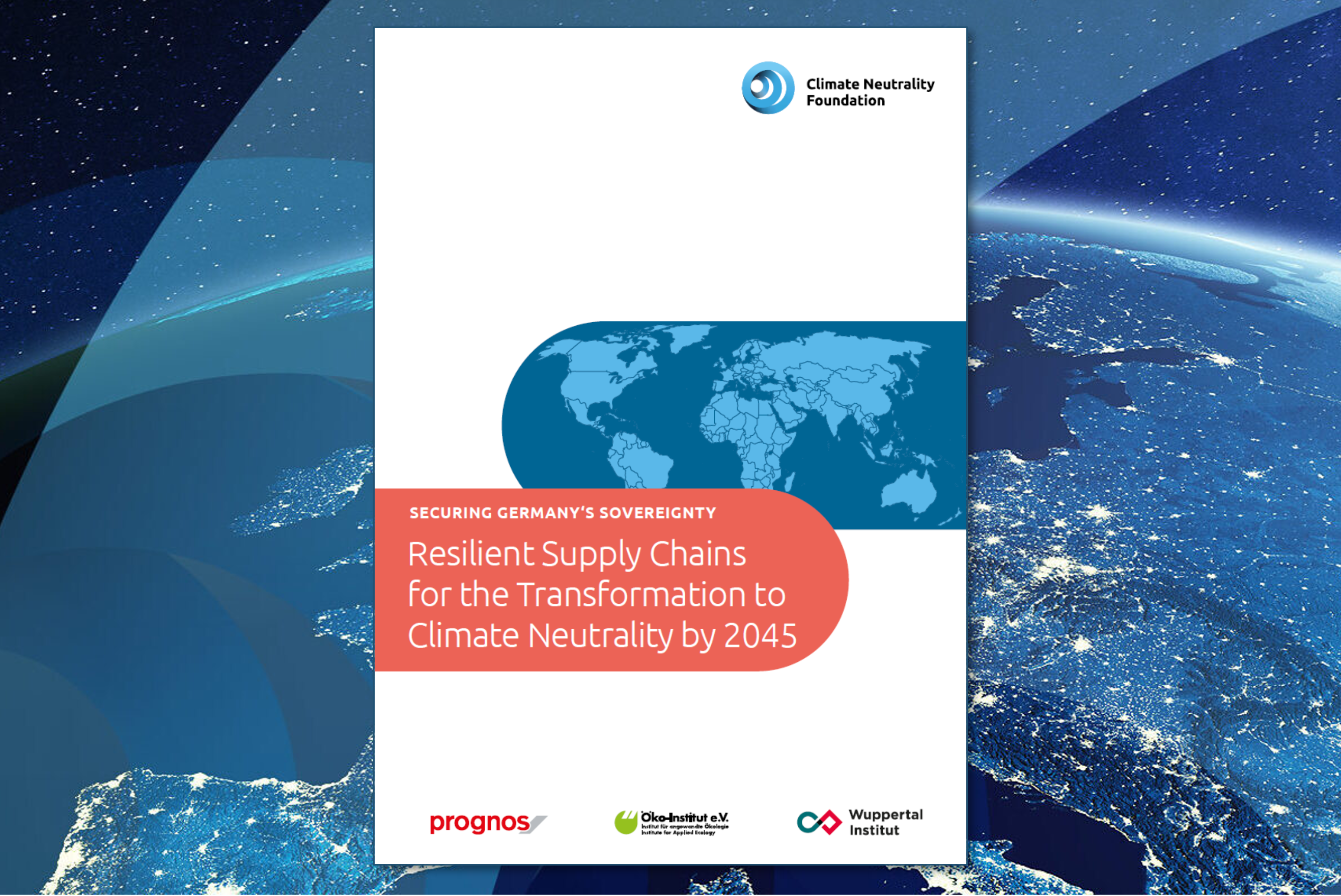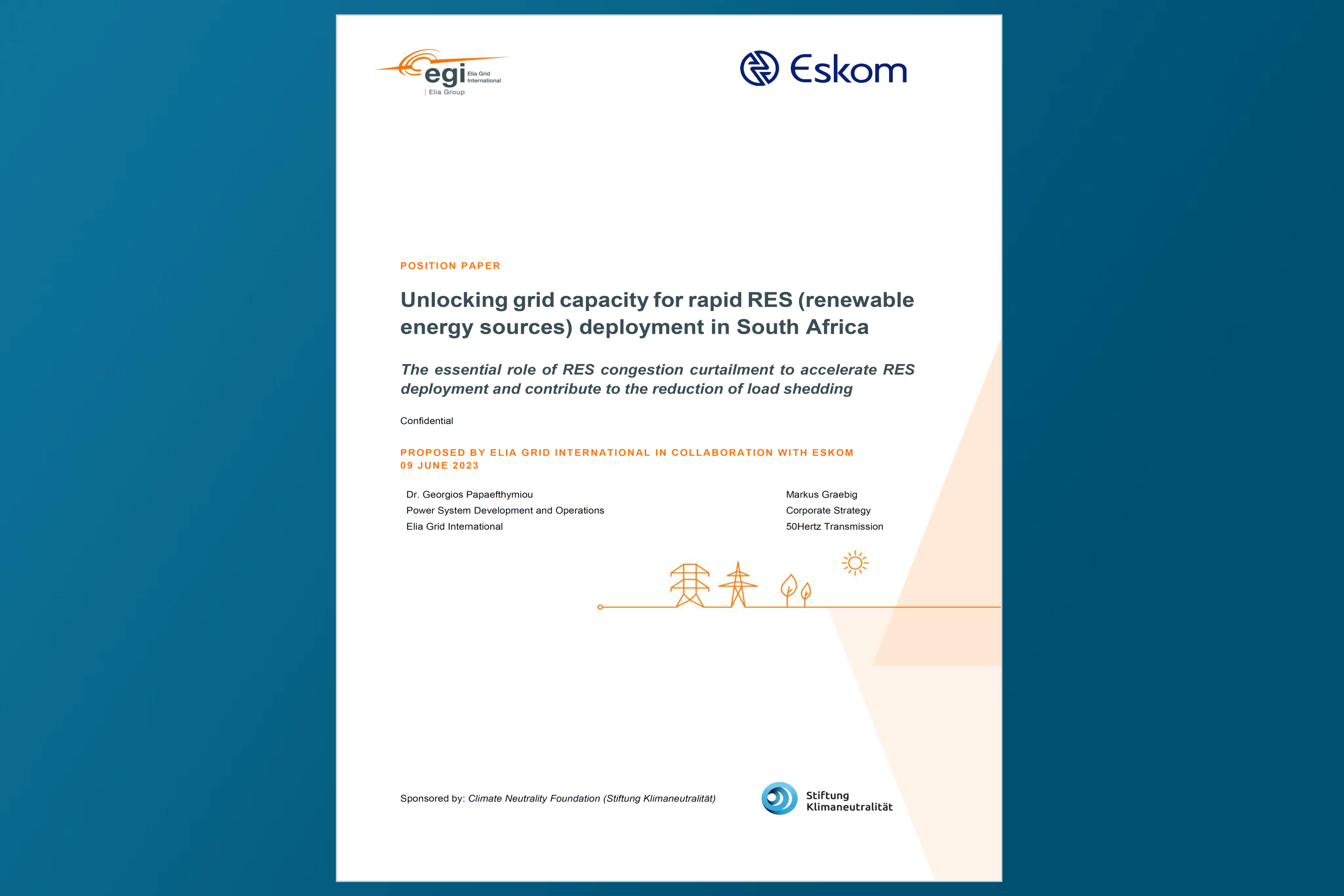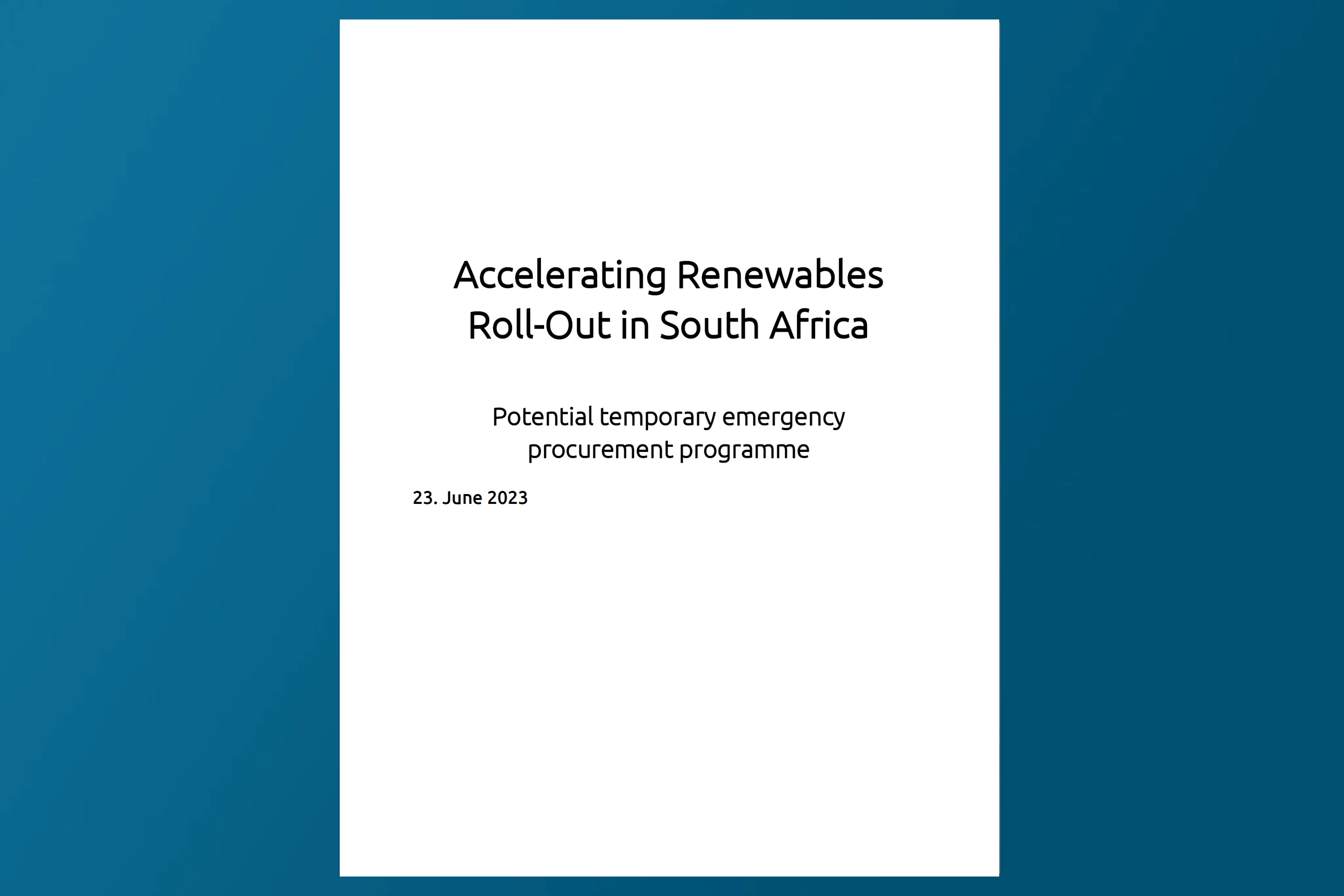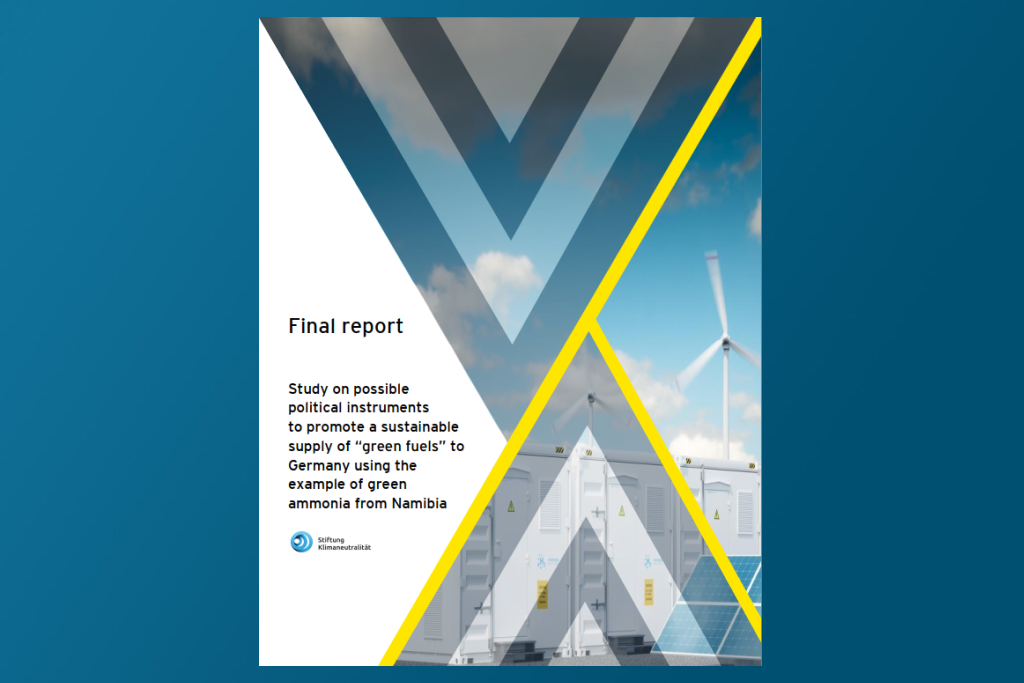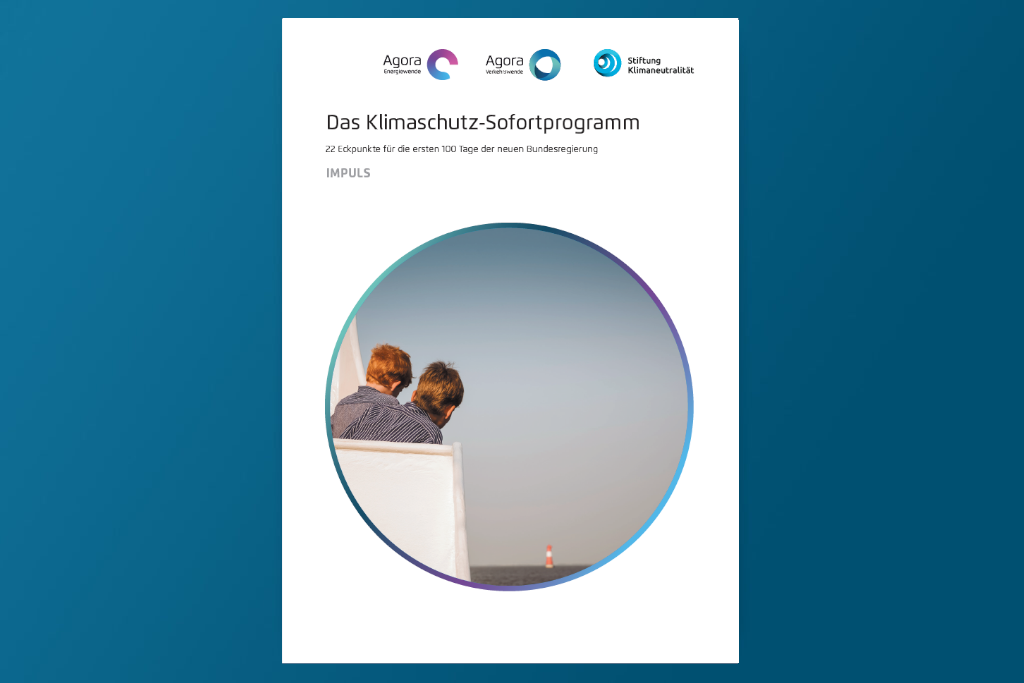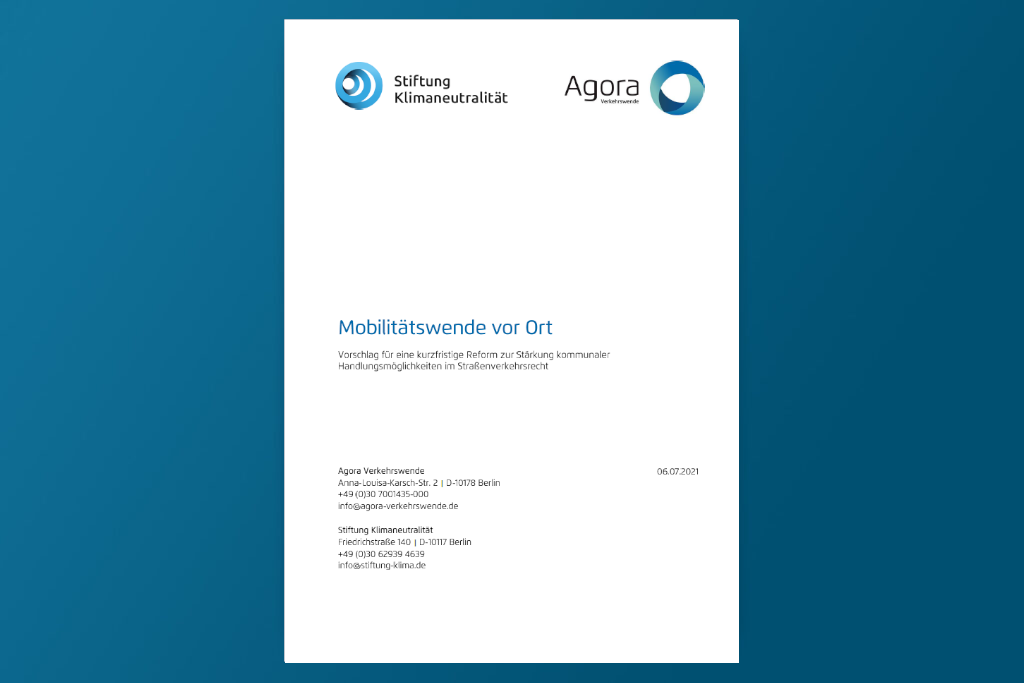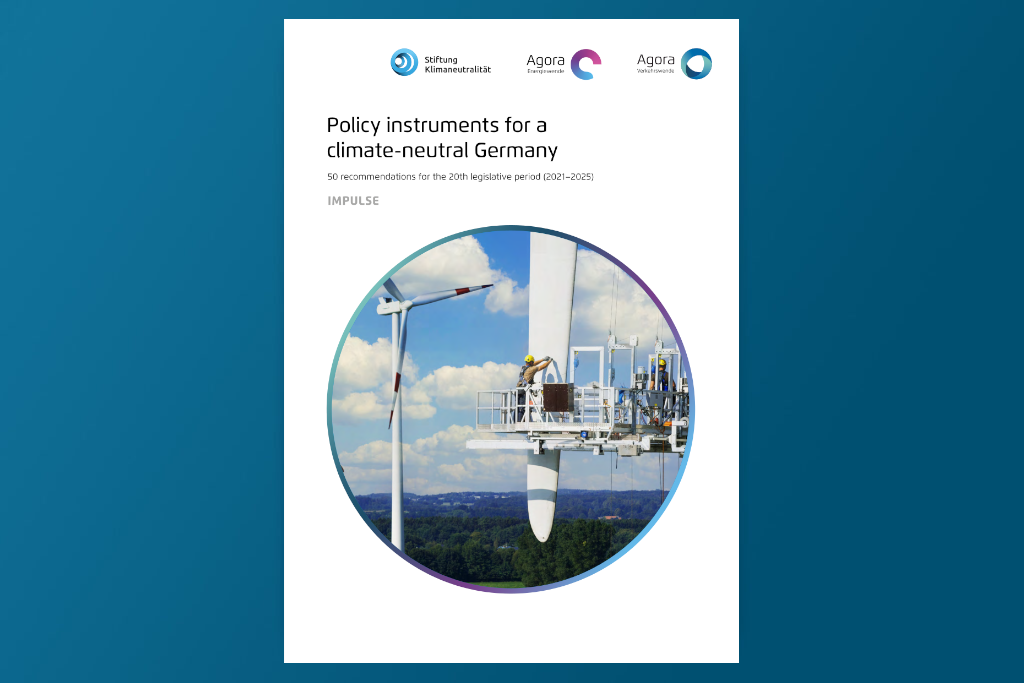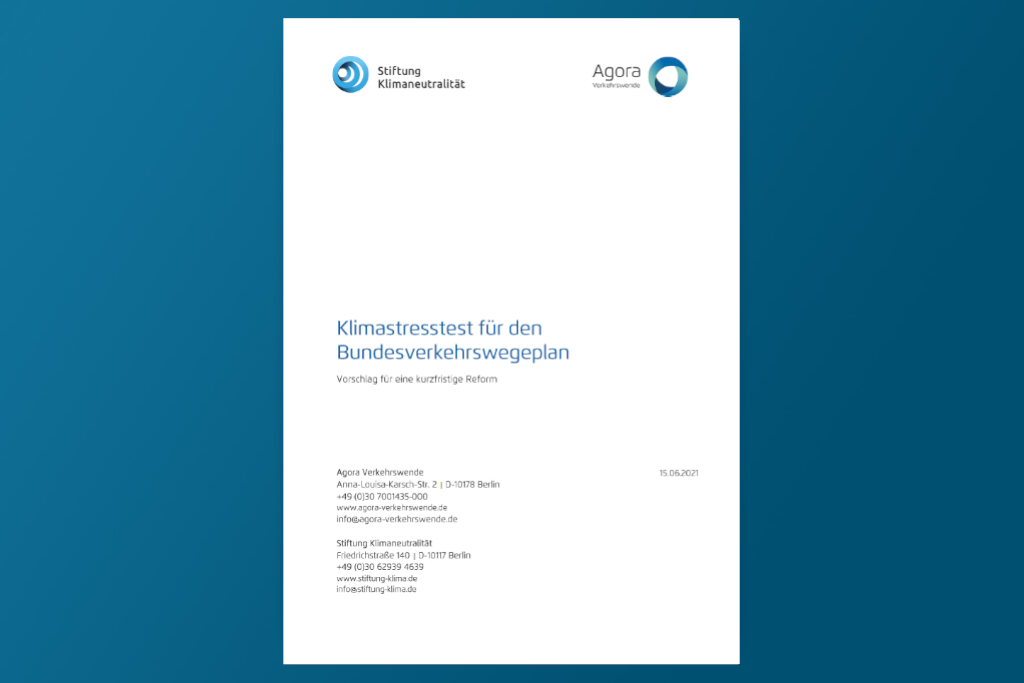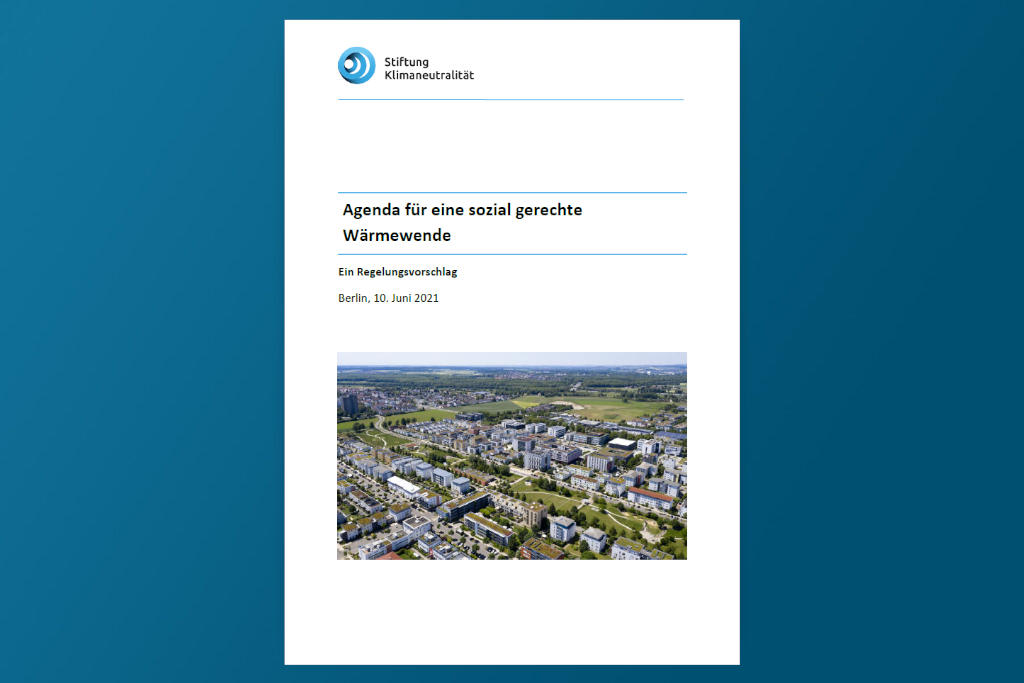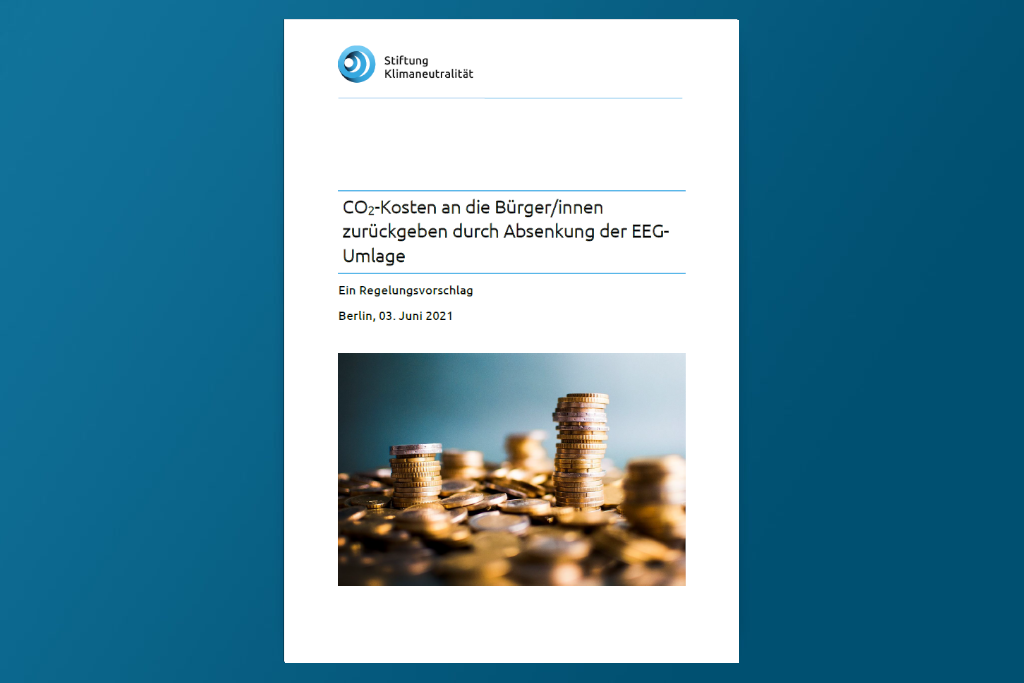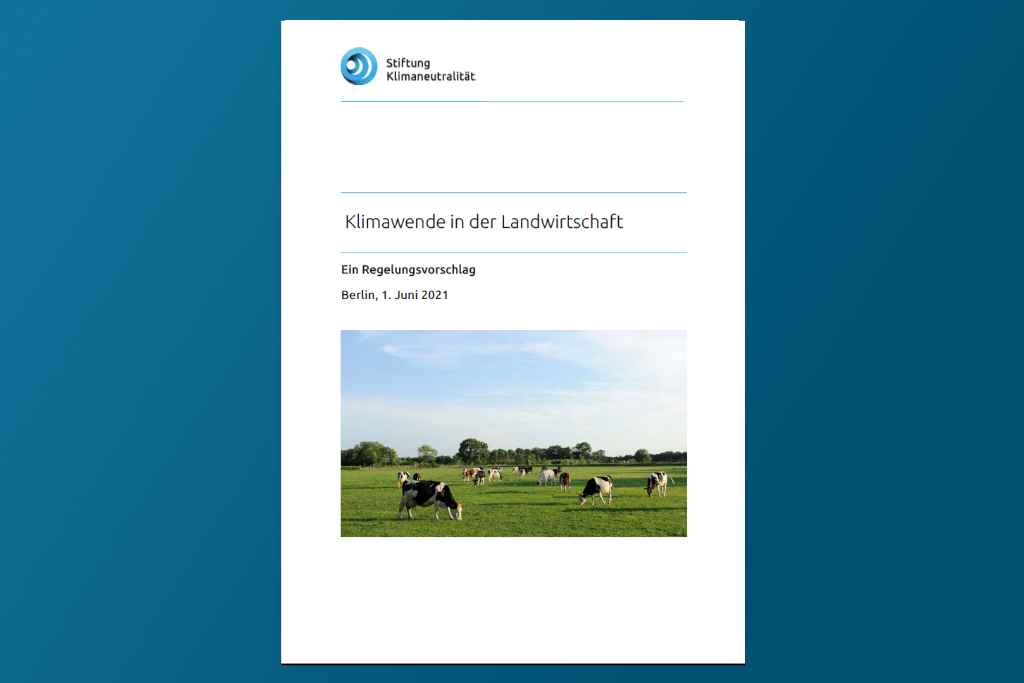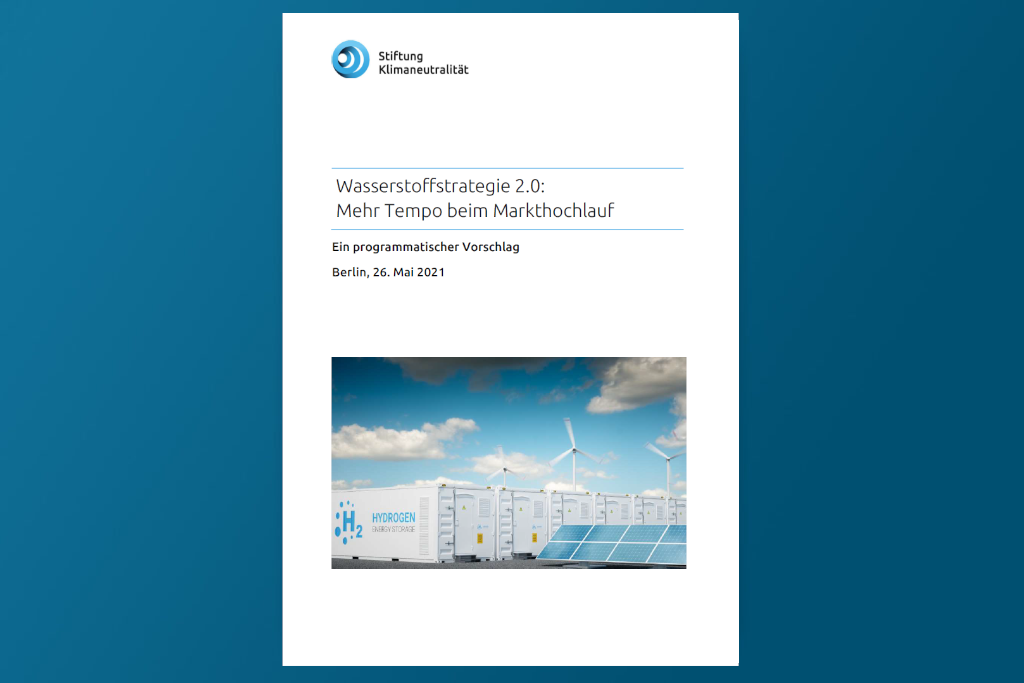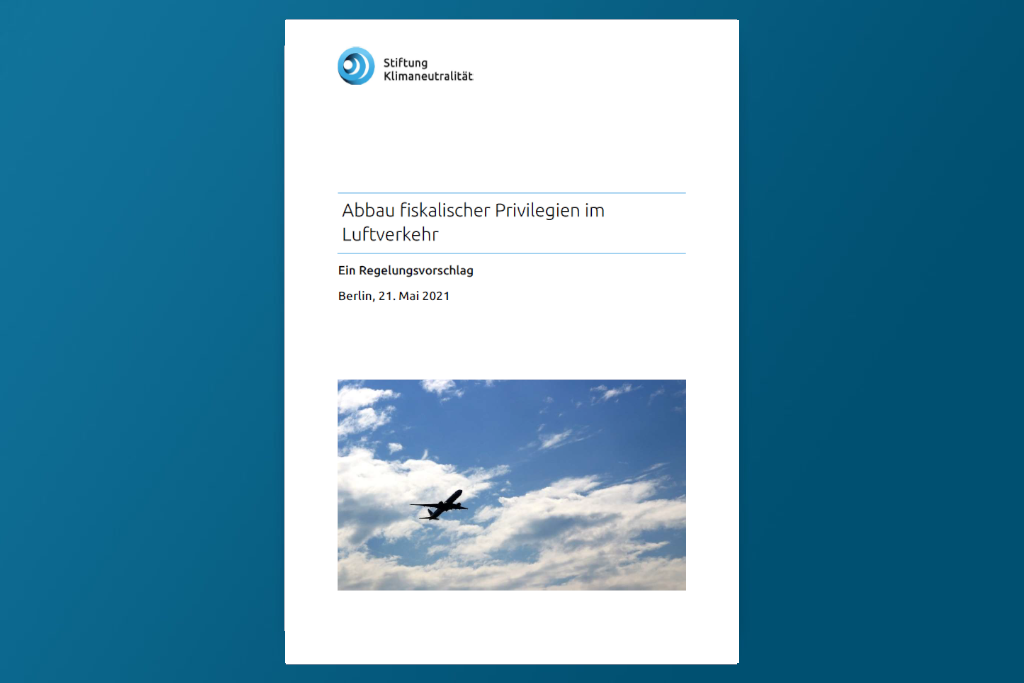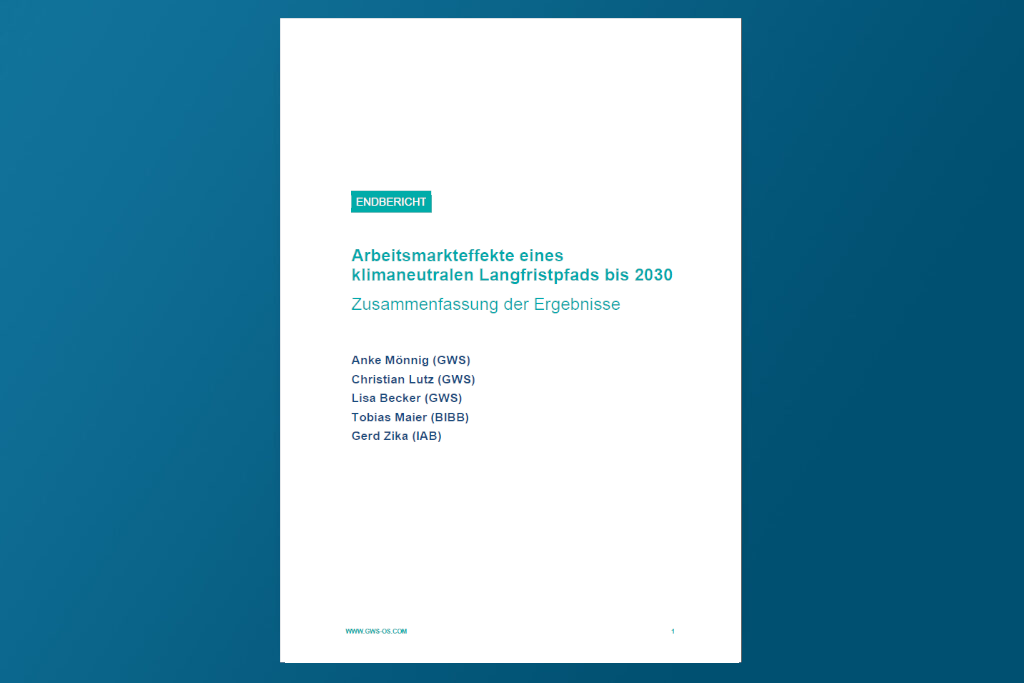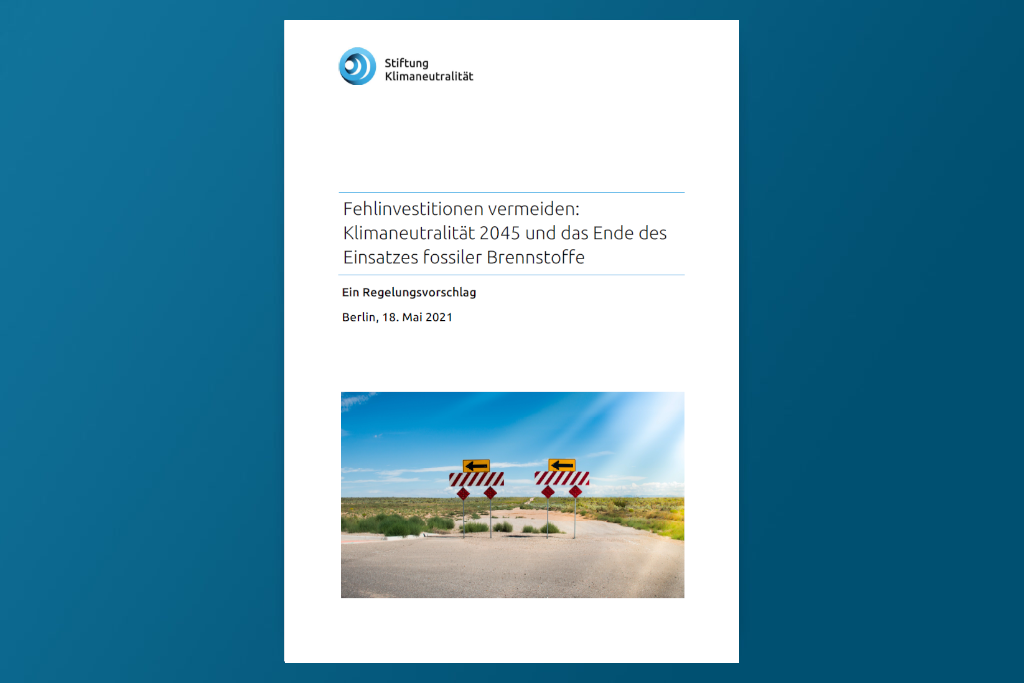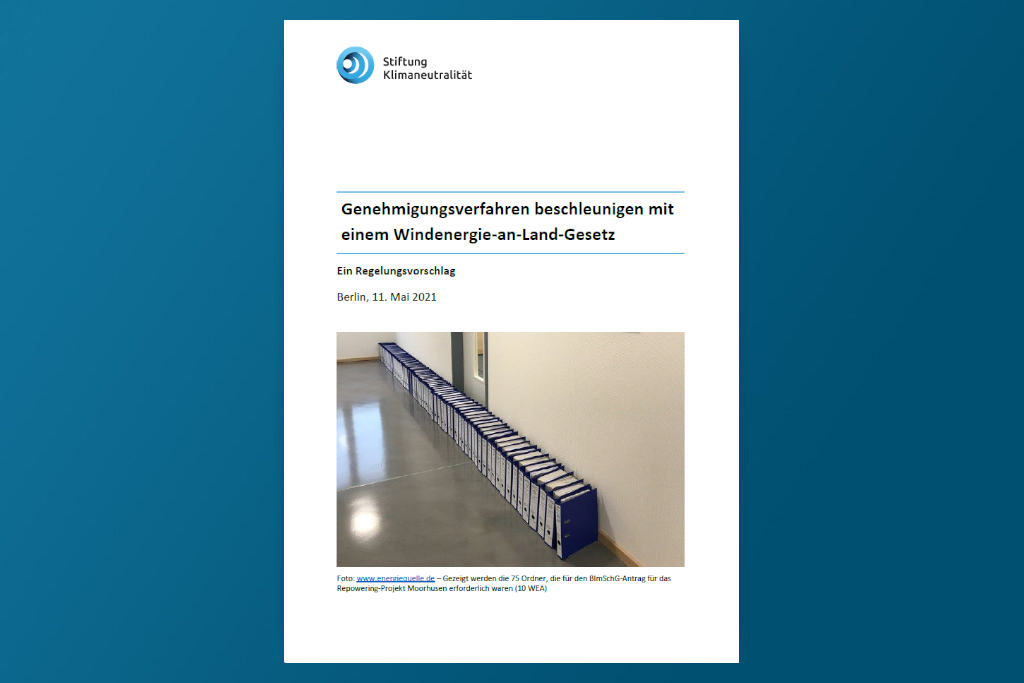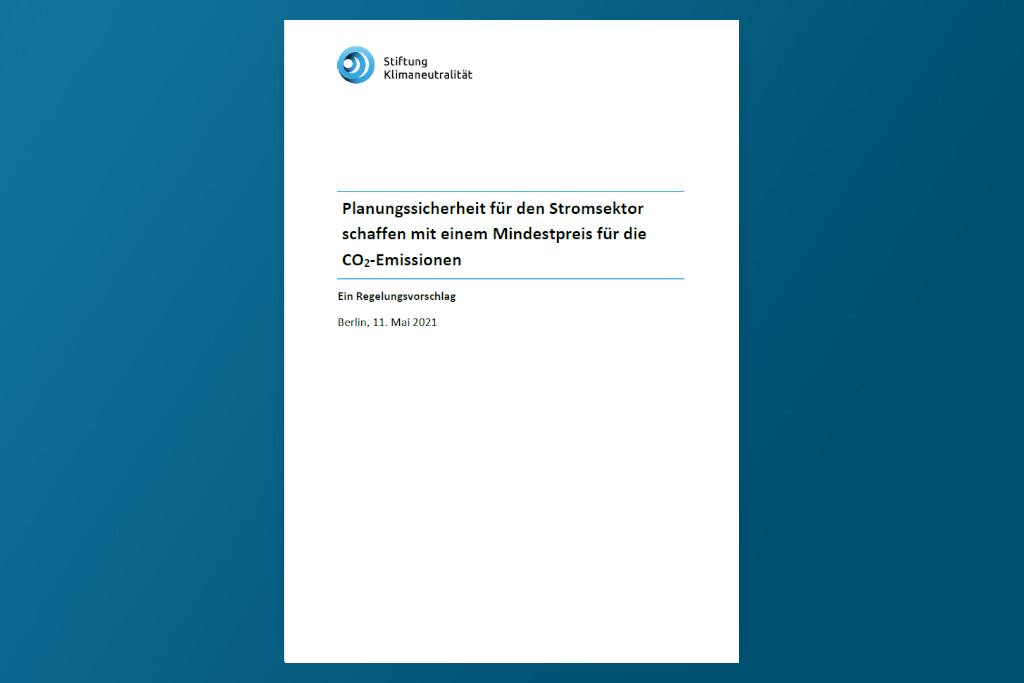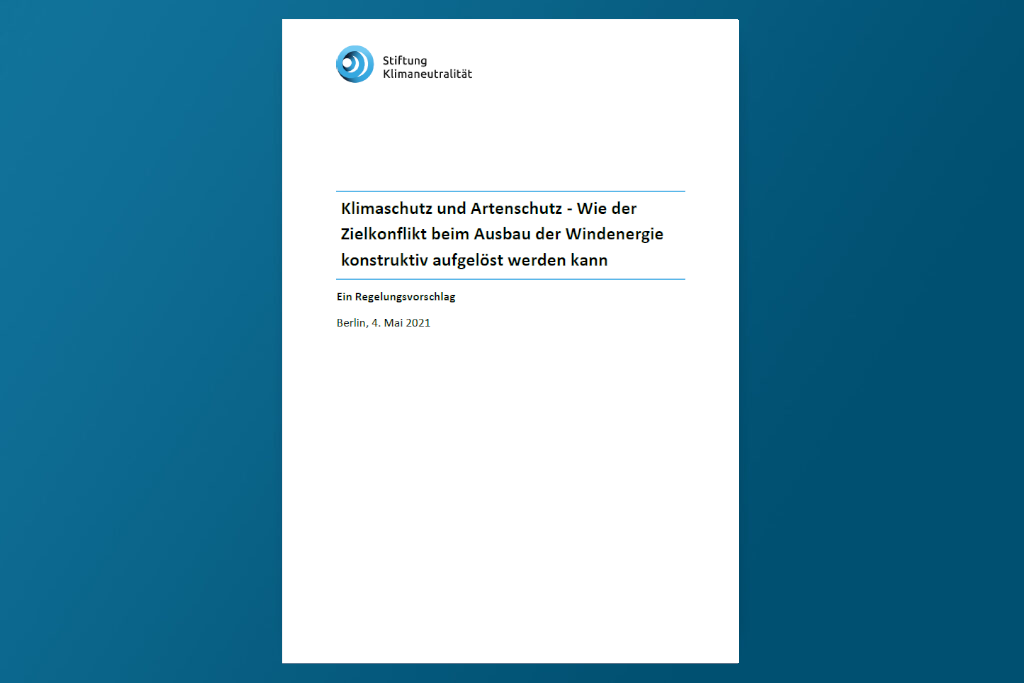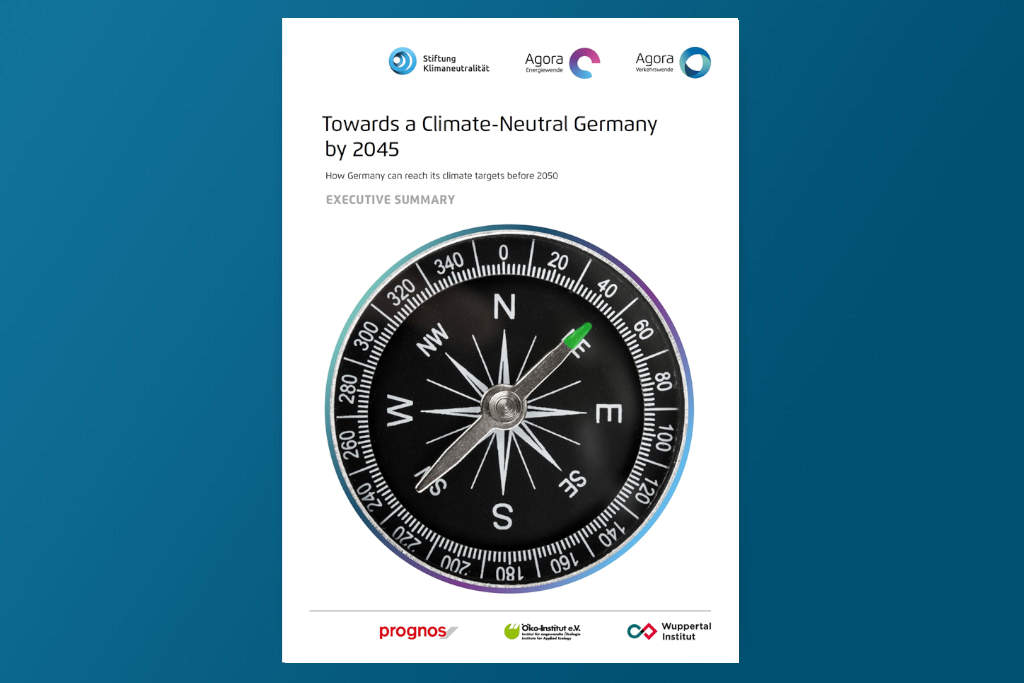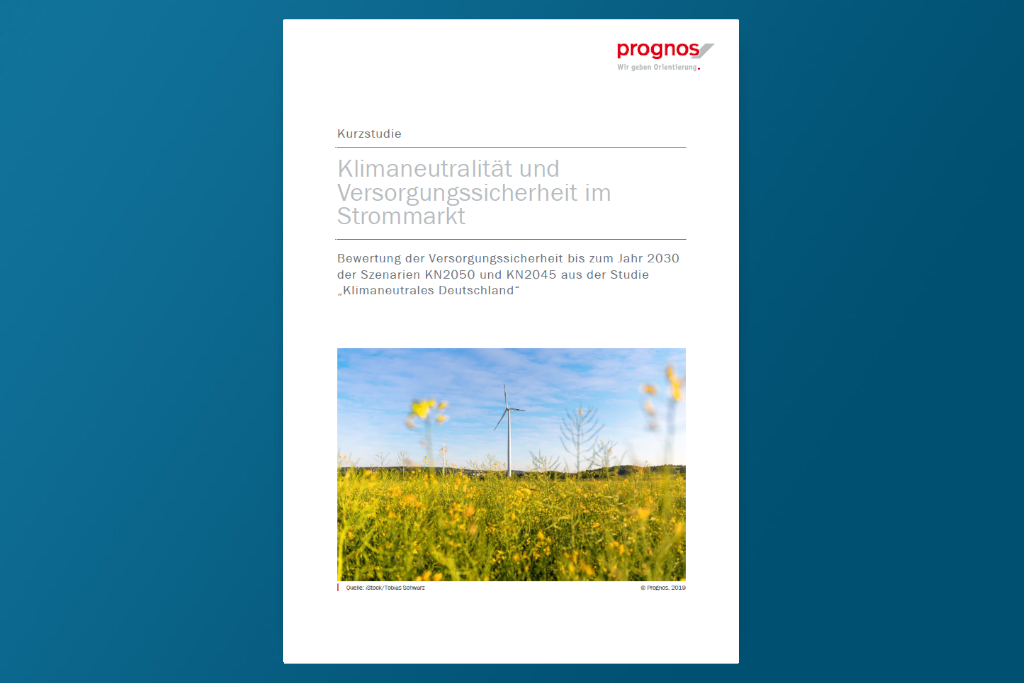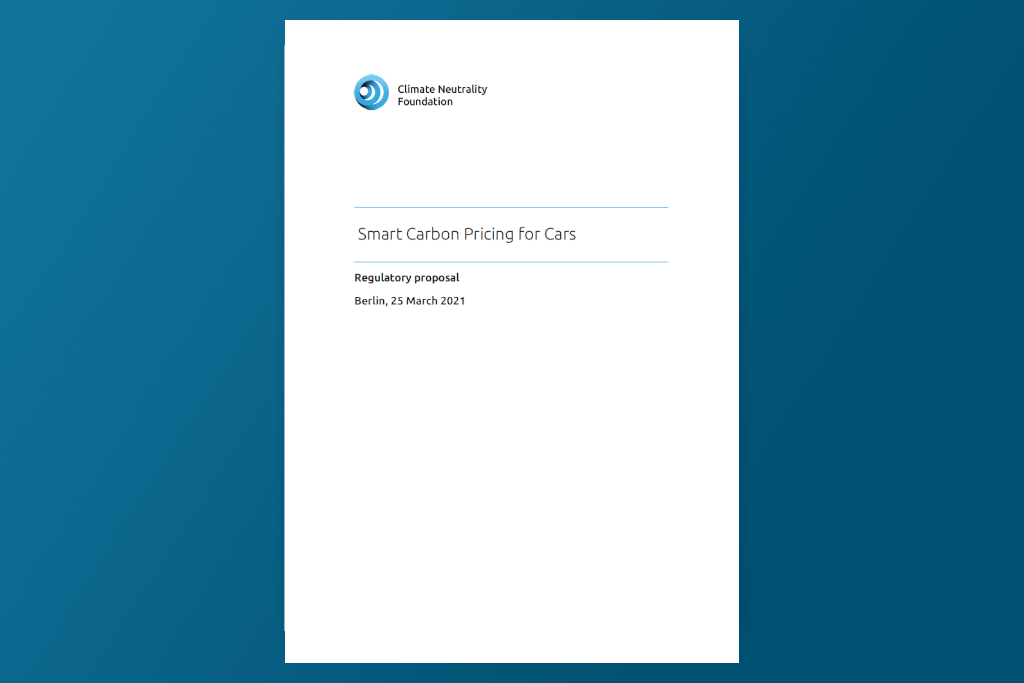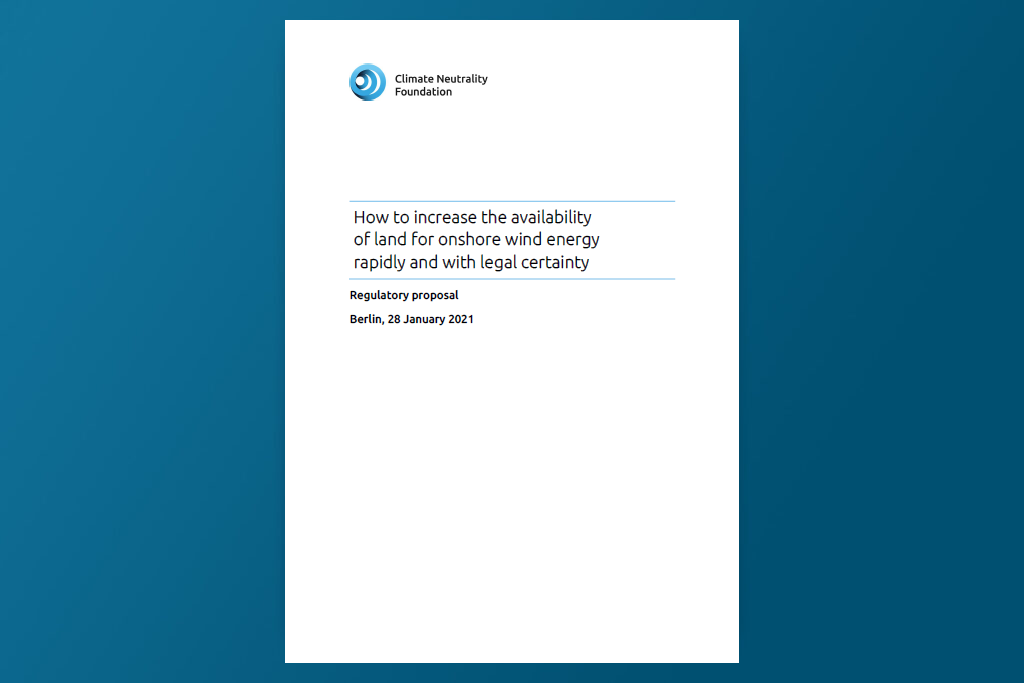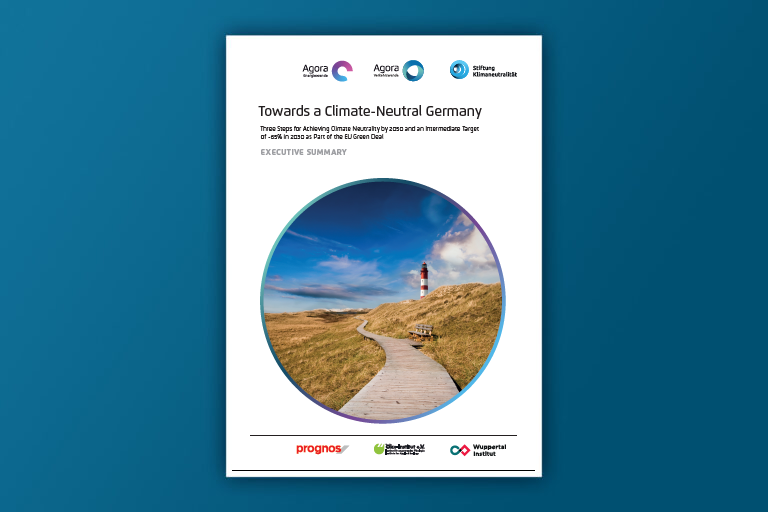Securing Green Hydrogen for the German Power Sector
A climate-neutral electricity system that relies primarily on low-cost but weather-dependent energy sources such as wind and solar power requires flexible backup capacities for a few hours a year. These backup capacities can generate electricity with storable, CO2-free energy sources. The planned Power Plant Safety Act provides for the use of hydrogen gas power plants for this purpose. On behalf of the Climate Neutrality Foundation, DNV has examined three hydrogen value chains in terms of costs and technological maturity in the study “Securing Green Hydrogen for the German Power Sector”: electrolysis in Germany, import of green ammonia, and import of green iron. The study shows that back-up power plants that produce electricity using hydrogen based on imported green iron can be a cost-effective supplement to power plants that work with green hydrogen from a German or European pipeline network. The generation of electricity from hydrogen produced by cracking green ammonia would be much more expensive than the first two options. The key components of the three options for providing backup capacities, namely production, transport and storage, have different degrees of technological maturity. Only real-world operation will show which technologies will prevail and to what extent.
October 2024 | Download | Presentation | Press release | Policy Brief |
International climate and transformation partnerships
Climate change, the decarbonization and digitalization of the economy and the shift in the geopolitical balance of power pose major challenges for politics and society and are forcing structural changes. Implementing the Paris Agreement and Germany’s foreign climate policy strategy requires new forms of international cooperation.
Partnerships provide the framework for securing the industrial and economic transformation, making it resilient, and promote sustainable economic prosperity in the participating partner countries. With the tripling of renewable energies and the doubling of the rate of increase in energy efficiency by 2030, as well as the move away from fossil fuels, investments are now at the center of the implementation agenda.
April 2024 | English edition | German edition | Spanish edition
Further development of KfW into a climate and transformation bank
The transformation to greenhouse gas neutrality and climate resilience while simultaneously achieving the Sustainable Development Goals requires considerable investment in the Global South. Development banks such as the German Kreditanstalt für Wiederaufbau (KfW) have a special role to play in reducing the cost of capital for transformation and leveraging far more private capital.
Due to its size and importance, KfW plays an outstanding role in the protection of global public goods. It could and should play an important bridging role between public and private investors. This study examines which measures need to be implemented in order for KfW to consistently develop into a climate and transformation bank.
April 2024 | English edition | German edition | Spanish edition
Resilient supply chains for the transformation to climate neutrality by 2045
A rapid and decisive investment and modernisation program is required in Germany and the EU to successfully facilitate the transformation to climate neutrality. A resilient supply of the necessary raw materials and strategic goods is an elementary prerequisite for this. In this context, new geopolitical challenges must be taken into account in such a way that Europe and Germany do not become susceptible to blackmail and the necessary political freedom for sovereign action is preserved.
The study by the Climate Neutrality Foundation identifies critical weak points for strategically important transformation industries along the entire value and supply chain. It provides answers for politics, business and society on how resilience to exogenous shocks can be increased.
September 2023 | long version | condensed version | fact sheets | German edition
Study „Unlocking grid capacity for rapid RES (renewable energy sources) deployment in South Africa”
Renewable energy sources (RES) are abundant in South Africa – and they are the fastest way to reduce load-shedding if a RES curtailment framework is in place. The persistent load shedding crisis in South Africa is caused by a power generation deficit of at least 6 GW. RES can be a cheap and fast remedy to this crisis. To ensure system security in the mid and long term, the substantial growth of RES will need to be accompanied by accelerated investments in grids and flexible, fast resources for their successful integration into the power systems. However, grid planning and expansion takes time and will only become effective in five to ten years from now. In the very short term (immediate action), significant amounts of RES in the order of magnitude of several gigawatts could be deployed even within the constrained areas of the existing power grid infrastructure, if only a certain operational framework – RES curtailment – gets implemented. This framework is laid out in this paper and could become effective within weeks. It could make a substantial contribution in the shortest possible time (2 years or less) to sustainably mitigate load shedding. “Curtailment” means making optimal use of existing power grids to accommodate maximum RES. It refers to the active control (reduction) of the output of RES plants as response to system security needs or temporary transmission capacity constraints. Preliminary analysis of ESKOM’s strategic grid planning confirms that by accepting a reasonable share of no more than 10% curtailment, the RES hosting capacity for the Western Cape Region could be almost doubled. Round about 4 GW of additional RES capacity could be connected to the grid almost immediately, and more than 90% of these RES plants’ electricity production could be safely integrated into the grid.
The study was done by Elia Grid International (EGI) in cooperation with the South African integrated electricity producer and TSO ESKOM. Elia Group is parent company of the North-eastern German TSO 50Hertz (grid region with 18 million people, 100 TWh annual load), which is one of the European frontrunners for the integration of variable RES – more than 60% on an annual average. At 50Hertz, like many other TSOs, curtailment has been a standard operation procedure for more than a decade. It has proven to be a highly efficient and effective way of grid operation with high shares of RES as it minimizes system expenditure, maximizes RES uptake and increases the speed of RES uptake. The study was commissioned by Climate Neutrality Foundation.
June 2023 | Download
Study „Accelerating Renewables Roll-Out in South Africa“
South Africa currently faces a serious energy crisis with regular loadshedding due to a 6-10 GW effective generation capacity gap. This has a severe economic impact and could cause a 2% Gross Domestic Product (GDP) decrease in 2023. This study provides a potential solution to accelerate renewable capacity deployment as an emergency, temporary programme to help alleviate this short-term energy crisis. If implemented successfully, the proposed programme could bring up to 17 GW of renewables (4 GW of solar Photovoltaics (PV) and 13 GW of wind) online within 2.5 years.
A Feed-in-Tariff (FiT) is proposed to minimise the time required to bring new utility-scale capacity online by removing the time-consuming process of selecting preferred bidders. The programme would offer a non-negotiable 20-year Power Purchase Agreement (PPA) with a fixed FiT, with a 15% premium over REIPPPP, of 630 R/MWh for solar PV and 910 R/MWh for wind projects greater than 50 MW. The premium is designed to attract developments in the northeast of the country, where load factors are expected to be on average 15% lower for wind, and to compensate for curtailment which will be required to optimise grid utilisation. The programme would be limited to a maximum of 16.8 GW, as additional capacity will either require determinations for the procurement of new electricity generating capacity outside of the guardrails set by the existing IRP or updating the IRP, both of which have long lead times. The objective of this proposed programme is not to replace the Renewable Energy Independent Power Producer Procurement Programme (REIPPPP) nor the Risk Mitigation Independent Power Producer Procurement Programme (RMIPPPP) but to rather complement these programmes to bring additional capacity online quickly. The study was conducted by the Boston Consulting Group with legal input from Norton Rose Fulbright and commissioned by Climate Neutrality Foundation.
June 2023 | Concept Paper | Presentation
Publication “Green ammonia from Namibia”
The decarbonization of industry in Germany requires a stable supply of green molecules. Green hydrogen (GH2) in the form of its derivative green ammonia is especially relevant in this context. Since Germany will remain a net energy importer in the future, it is now important to actively promote the development of green hydrogen projects abroad. As a lesson from the Russian war of aggression, Germany should increasingly cooperate with other democracies in the development of this new energy industry and not once again make itself dependent on energy imports from individual authoritarian states. Countries in the global south that are democratically governed, respect human rights, guarantee freedom of the press and at the same time have excellent solar and wind conditions, such as Namibia, are particularly suitable for this. On behalf of the Climate Neutrality Foundation, EY has prepared a study on possible political instruments to promote a sustainable supply of “Green Fuels” to Germany, using the example of green ammonia from Namibia.
The initiative for the development of a hydrogen economy came from the Namibian government. A consortium called Hyphen, in which a German company is involved, prevailed in a competitive bidding process. The study examines potential barriers to the GH2 project and develops policy support tools. The study identifies first-mover disadvantages, lack of investor attractiveness, bankability, and implementation speed as the main risks. Although Namibia offers excellent conditions for renewable energy and green hydrogen production, the success of the green hydrogen project largely depends on the interest rates it has to pay in international capital markets. Since Namibia is a developing country, borrowing money for an investment always comes with a risk premium. Due to the large project size of approximately US$10 billion (roughly equivalent to Namibia’s GDP), even small changes in the interest rate have a large impact on the final price of green hydrogen ($/kg). The study concludes that a combination of instruments is needed to reduce project risk and thus project financing costs: a contract for difference (CfD) that provides a minimum price for ammonia; sending government policy and project planning representatives to Namibia; timely development of the necessary import infrastructure in Germany; and finally, a quota for GH2/green ammonia in Germany or Europe.
October 2022 | Download
Publication “The climate action program”
Germany must triple its climate action efforts compared to the status quo. This is the only way to achieve the targets agreed in the new Climate Protection Act of at least 65 percent greenhouse gas emissions reduction by 2030 and climate neutrality by 2045. The incoming German government must implement a comprehensive climate action emergency program in its first 100 days, otherwise the annual climate targets will be regularly missed and climate neutrality in 2045 will be out of reach.
Climate Neutrality Foundation, together with Agora Energiewende and Agora Verkehrswende, has developed proposals for an immediate climate protection program. It identifies 22 measures that are prepared so that the new government can launch them in the first 100 days (in German only).
August 2021 | Download
Regulatory proposal “Sustainable urban mobility”
Municipalities are in a key position to advance sustainable mobility – for example, by establishing bicycle lanes, car-free zones or parking space management. However, in Germany the current legal framework, federal road traffic law, often hinders municipalities in doing so. Against this background, Climate Neutrality Foundation and Agora Verkehrswende have commissioned the law firm Becker Büttner Held to provide a legal opinion on the question of how road traffic law can be amended quickly in such a way as to strengthen local authorities’ options for transforming the transport sector (in German).
Based on the legal opinion, Climate Neutrality Foundation and Agora Verkehrswende make a proposal for a quick reform of road traffic law (in German).
July 2021 | Link to the publication
Publication “Policy instruments for a climate-neutral Germany”
Germany aims to become climate neutral by 2045 and, as an intermediate step, to reduce its greenhouse gas emissions by at least 65 percent below 1990 levels by 2030. This higher ambition is feasible, but requires a completely new quality and a much faster pace in climate policy.
Climate Neutrality Foundation, in cooperation with Agora Energiewende and Agora Verkehrswende, has developed proposals for 50 policy instruments that need to be adopted in the coming legislative period in order to achieve the interim target raised for 2030.
June 2021 | Link to the publication
Reform proposal “Climate stress test for the Federal Transport Infrastructure Plan”
The Federal Transport Infrastructure Plan is the most important planning instrument for road, rail and water infrastructure. The 2030 Federal Transport Infrastructure Plan has a volume of around 270 billion euros. In its current form, it is not compatible with the climate protection target of 65 percent greenhouse gas reduction by 2030 and climate neutrality by 2045. Against this background, Climate Neutrality Foundation and Agora Verkehrswende have commissioned the law firm Becker Büttner Held to investigate in a legal opinion (in German) whether and how the Federal Transport Infrastructure Plan and the expansion laws based on it can be adapted in the short term so that infrastructure planning is in line with climate targets. Against this background, Climate Neutrality Foundation and Agora Verkehrswende make a proposal for a short-term reform.
June 2021 | Link to the publication
Regulatory proposal “Agenda for a socially just heat transition”
The German government’s new climate targets call for much greater speed in the buildings sector than before: according to the amendment to the Climate Protection Act, 5.5 million tons of CO2 need to be reduced in this sector every year. In the building sector in particular, effective climate protection can only be achieved with a broad mix of instruments due to long investment cycles, low price elasticities and the incentive structures of landlords and tenants. Climate Neutrality Foundation proposes an action plan for the coming legislative period based on a comprehensive study by Öko-Institut and Hamburg Institut (in German only).
June 2021 | Link to the publication
Regulatory proposal “Returning CO2 costs to citizens by lowering the EEG levy”
An effective CO2 price significantly above today’s level and the current price path planned by the German government needs to be part of any serious climate policy. Moreover, climate neutrality requires extensive electrification of as many sectors of the economy as possible. For two decades, the German Renewable Energy Sources Act (EEG) levy was the guarantor of reliable support for renewable energies, but today it hinders investments into electrifying other sectors.
Based on a study by the Öko-Institut, the Climate Neutrality Foundation has now developed a coherent overall concept for the first time (publication in German only). In return for a necessary increase in carbon prices for fossil fuels in the building and transport sectors, this concept provides for a significant reduction in electricity costs by abolishing the EEG levy. This not only creates clear incentives for electrification of the buildings and transport sectors. It also means that policymakers no longer have to “incentivize” against distorted market forces with scarce tax resources. It is thus a “win-win strategy” for climate protection.
June 2021 | Link to the publication
Regulatory proposal “Transforming Agriculture towards Climate Neutrality”
Even if large shares of greenhouse gas emissions in agriculture are biological and cannot be completely avoided, there remains a considerable reduction potential that agriculture can and should contribute to climate neutrality. This primarily involves avoiding nitrogen surpluses in fertilization and reducing methane emissions from animal husbandry.
Based on a study by a consortium led by scientists from Berlin’s Humboldt University, the Climate Neutrality Foundation has developed corresponding policy recommendations (in German only).
June 2021 | Link to the publication
Proposal “Hydrogen Strategy 2.0: How to accelerate the market ramp-up”
Our study “Towards a Climate Neutral Germany 2045” forecasts a demand of more than 60 TWh of hydrogen already for the year 2030. Even with a very rapid expansion of renewable energies in Germany and an increase in electrolysis capacity to 10 GW, only just under a third of the demand can be met by domestic production. Against this background, Climate Neutrality Foundation commissioned the Öko-Institut to investigate how the current National Hydrogen Strategy should be further developed in order to achieve the climate targets.
Based on this study, Climate Neutrality Foundation proposes key points for a Hydrogen Strategy 2.0.
May 2021 | Link to the publication
Regulatory proposal “Reducing fiscal privileges of aviation”
No other mode of transport causes higher greenhouse gas emissions per person and kilometer than flying. While greenhouse gas emissions in Germany fell by 35% overall between 1990 and 2019, those from air travel rose by 150%. Yet this mode of transport is artificially cheapened by a series of tax privileges. Based on a study by the Öko-Institut, Climate Neutrality Foundation makes suggestions on how the various tax privileges of air transport can be dismantled.
May 2021 | Link to the publication
Study “Labor market effects of long-term climate neutrality, with a focus on 2030”
The scenarios “Towards a Climate Neutral Germany 2045” and “Towards a Climate Neutral Germany 2050” have shown which additional climate protection measures are necessary to achieve the required interim target of 65% greenhouse gas reduction by 2030. The structural change associated with the path to a climate-neutral Germany has a positive impact on economic growth and employment. This is the result of calculations by the Institute of Economic Structures Research (GWS) on behalf of the Climate Neutrality Foundation, which were based on the target of a CO2 reduction of minus 65% by 2030 (in German only).
May 2021 | Link to the publication
Regulatory proposal “Avoiding Stranded Assets”
The new German climate targets require an almost complete reversal of Germany’s primary energy consumption, 80% of which is still based on fossil fuels. Climate neutrality by 2045 means nothing other than that the use of crude oil, coal and natural gas in Germany must be ended by then. This end date needs to be enshrined in law – and without delay, because many plants have depreciation periods that in some cases extend far beyond 2045. Otherwise, there is a risk that bad investments will be made today and compensation claims will be asserted by private individuals against the taxpayer community tomorrow. Based on a legal opinion, Climate neutrality Foundation has drawn up a proposal for limiting the use of fossil fuels in all sectors of the economy to the period up to January 1, 2045.
May 2021 | Link to the publication
Regulatory proposal “How to accelerate the permitting process with an Onshore Wind Energy Act”
The expansion of onshore wind energy has collapsed in recent years. One of the main causes is the excessively long approval procedures, which in many cases now drag on for years. The length of the procedures also often means that applications designed for specific types of turbines have to be completely re-submitted if the turbines applied for are no longer available or the applicant wishes to switch to more modern turbines. Without a fundamental reform of the approval law with a significant acceleration of the approval procedures, neither the expansion targets for wind energy nor the climate targets can be achieved. In order to achieve a significant acceleration of the approval procedures, Stiftung Klimaneutralität is making a proposal for a Wind Energy on Land Act.
May 2021 | Link to the publication
Regulatory proposal “A carbon floor price for power generation”
The German government’s new climate targets call for a 65% reduction in greenhouse gas emissions by 2030. According to analyses by the Climate Neutrality Foundation, this target can only be achieved by bringing forward the phase-out of coal from the current 2038 to 2030. Although such a development is likely as a result of the climate targets also recently raised in the EU, it should be secured by a carbon floor price in the German power sector, in order to create planning security. Based on a study by the Öko-Institut and a legal opinion by the Stiftung Umweltenergierecht, Climate Neutrality Foundation proposes the introduction of a national carbon floor price for the electricity sector.
May 2021 | Link to the publication
Regulatory proposal “Climate Protection and Species Conservation”
Onshore wind turbines with an installed capacity of 80 GW will be needed by 2030, and as much as 145 GW by 2045. At the end of 2020, however, only just under 55 GW had been installed. However, the expansion of onshore wind energy has slumped massively in the last three years. In addition to the lack of available land, one of the main reasons for this slump is the unresolved conflict of objectives with species protection. Disputes are increasingly ending up in the courts; so far, it has not been possible to reconcile climate protection and species conservation. Based on an expert opinion and a legal opinion, Climate Neutrality Foundation has developed a proposal for resolving the conflict of goals between climate protection and species protection in the expansion of wind energy.
May 2021 | Link to the publication
Publication “Towards a Climate-Neutral Germany 2045”
The study Towards a Climate-Neutral Germany 2045, commissioned in cooperation with Agora Energiewende and Agora Verkehrswende, uses scenarios to show how Germany can become climate neutral by 2045. The previous study, Towards a Climate-Neutral Germany 2050, describes how the target set by the German parliament can be achieved by mid-century. With the present study, we show that climate neutrality is also possible as early as 2045. This once again significantly reduces the total greenhouse gas emissions released. The fundamental premises of the 2050 study still apply: the path is realistic, the goal will be achieved within the usual investment and life cycles and while maintaining economic viability and social acceptance. Key levers for additional acceleration are a faster expansion of renewables, a more rapid hydrogen ramp-up, accelerated electrification in transport, further strengthening of building retrofits, and larger market shares of plant-based instead of animal-based protein products in the period after 2030.
April 2021 | Link to the publication
Study on security of supply on the way to climate neutrality
The scenarios Climate-Neutral Germany 2045 and Climate-Neutral Germany 2050 describe paths to climate neutrality in Germany in 2045 and 2050, respectively. In this context, the question arises as to how security of supply can be guaranteed in such a rapidly changing electricity system. The Climate Neutrality Foundation commissioned Prognos to investigate the question of supply security on the electricity market. The study presented here provides analyses of supply security in the Climate Neutrality Scenarios and provides an outlook on systemic measures to ensure supply security.
April 2021 | Link to the publication
Regulatory proposal “Smart carbon pricing for cars”
Transport is the problem child of climate policy. Without a massive ramp-up of electromobility, we will not achieve our climate targets. A switch to 14 million electric vehicles must succeed by 2030. Climate Neutrality Foundation has commissioned a legal opinion to investigate the options available to national legislators (in German). On the basis of this legal opinion, the foundation is making a proposal on how the vehicle tax can be developed into a smart carbon pricing system. The aim is to create cost parity in the purchase of electric vehicles and vehicles with combustion engines and thus accelerate the drive turnaround.
March 2021 | Link to the publication
Regulatory proposal “More Land for Wind Energy”
On the way towards climate neutrality, wind energy will become the most important source of energy in Germany. To accelerate the necessary expansion of wind energy in Germany, significantly more qualified areas must be made available for onshore wind. We propose a new approach towards the so-called concentration zone planning in the Federal Building Code, which can be implemented quickly. The proposal is based on a legal opinion by Professor Martin Kment, an environmental and planning lawyer from Augsburg. The proposed regulation creates a positive incentive for municipalities and states to make sufficient areas available for wind energy.
January 2021 | Link to the publication
Publication “Towards a Climate-Neutral Germany”
The large-scale study “Towards a Climate-Neutral Germany”, commissioned in cooperation with Agora Energiewende and Agora Verkehrswende, shows how Germany can become climate-neutral by 2050, with cost-effectiveness, adherence to existing investment cycles and acceptance as core criteria. This is possible through the consistent application of technologies that are already available today or are well developed. Climate neutrality requires an electricity system based entirely on renewable energies. Road transport and heat supply will largely switch to electricity-based solutions. The efficient refurbishment of existing buildings and the establishment of a hydrogen economy for industry, power generation, shipping and aviation are essential.
October 2020 | Link to the publication
